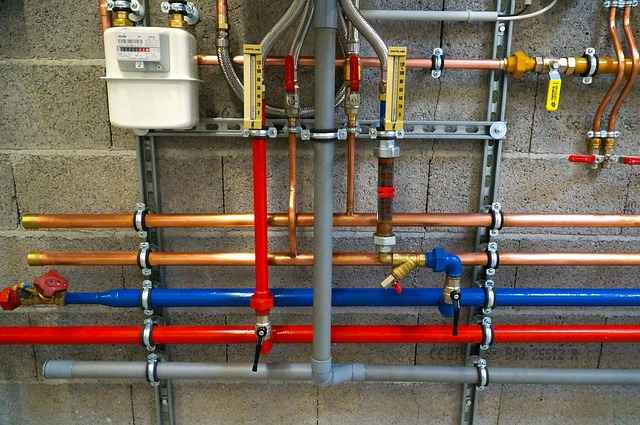
Plumbers
Published on
Average Read time: 2 minutes
Plumbers play a crucial role in maintaining and repairing plumbing systems, which are essential for water supply, sanitation, and heating in homes, businesses, and other buildings. Here are some of the typical responsibilities of a plumber:
Installation of Plumbing Systems: Plumbers install new plumbing systems in residential, commercial, and industrial buildings. This includes pipes, fixtures (such as sinks, toilets, showers, and faucets), water heaters, and appliances that require plumbing connections.
Maintenance and Repair: Plumbers perform routine maintenance and repair tasks to ensure that plumbing systems function properly. This may involve fixing leaks, repairing or replacing damaged pipes, clearing clogged drains, and addressing issues with fixtures or appliances.
Diagnosis and Troubleshooting: Plumbers use their expertise to diagnose plumbing problems and identify the underlying causes. They may use tools such as video cameras to inspect pipes and locate blockages or leaks hidden from view.
Pipefitting and Welding: Plumbers are skilled in pipefitting and welding techniques, allowing them to join pipes and fittings securely. This is essential for installing new plumbing systems or repairing damaged pipes.
Water Quality and Conservation: Plumbers may advise on water quality issues and recommend solutions such as water filtration systems or water softeners. They also promote water conservation by installing low-flow fixtures and recommending efficient water use practices.
Gas Plumbing: Some plumbers specialize in gas plumbing, which involves installing, repairing, and maintaining gas lines and appliances. Gas plumbers ensure that gas systems are installed safely and comply with relevant regulations.
Emergency Services: Plumbers often provide emergency plumbing services to address urgent issues such as burst pipes, gas leaks, or sewer backups. They respond promptly to minimize damage and restore functionality to plumbing systems.
Compliance with Codes and Regulations: Plumbers must adhere to building codes, regulations, and safety standards when installing or repairing plumbing systems. They ensure that work is performed safely and in compliance with local plumbing codes.
Customer Service: Plumbers interact with customers to understand their plumbing needs, explain repair or installation processes, and provide estimates for services. Good communication and customer service skills are essential for building trust and satisfaction with clients.
Continuing Education: Plumbers stay updated on advancements in plumbing technology, materials, and techniques through continuing education and training programs. This allows them to provide high-quality services and remain competitive in the industry.
Installation of Plumbing Systems: Plumbers install new plumbing systems in residential, commercial, and industrial buildings. This includes pipes, fixtures (such as sinks, toilets, showers, and faucets), water heaters, and appliances that require plumbing connections.
Maintenance and Repair: Plumbers perform routine maintenance and repair tasks to ensure that plumbing systems function properly. This may involve fixing leaks, repairing or replacing damaged pipes, clearing clogged drains, and addressing issues with fixtures or appliances.
Diagnosis and Troubleshooting: Plumbers use their expertise to diagnose plumbing problems and identify the underlying causes. They may use tools such as video cameras to inspect pipes and locate blockages or leaks hidden from view.
Pipefitting and Welding: Plumbers are skilled in pipefitting and welding techniques, allowing them to join pipes and fittings securely. This is essential for installing new plumbing systems or repairing damaged pipes.
Water Quality and Conservation: Plumbers may advise on water quality issues and recommend solutions such as water filtration systems or water softeners. They also promote water conservation by installing low-flow fixtures and recommending efficient water use practices.
Gas Plumbing: Some plumbers specialize in gas plumbing, which involves installing, repairing, and maintaining gas lines and appliances. Gas plumbers ensure that gas systems are installed safely and comply with relevant regulations.
Emergency Services: Plumbers often provide emergency plumbing services to address urgent issues such as burst pipes, gas leaks, or sewer backups. They respond promptly to minimize damage and restore functionality to plumbing systems.
Compliance with Codes and Regulations: Plumbers must adhere to building codes, regulations, and safety standards when installing or repairing plumbing systems. They ensure that work is performed safely and in compliance with local plumbing codes.
Customer Service: Plumbers interact with customers to understand their plumbing needs, explain repair or installation processes, and provide estimates for services. Good communication and customer service skills are essential for building trust and satisfaction with clients.
Continuing Education: Plumbers stay updated on advancements in plumbing technology, materials, and techniques through continuing education and training programs. This allows them to provide high-quality services and remain competitive in the industry.
Overall, plumbers play a vital role in ensuring the functionality, safety, and efficiency of plumbing systems, contributing to the comfort and well-being of individuals and communities.